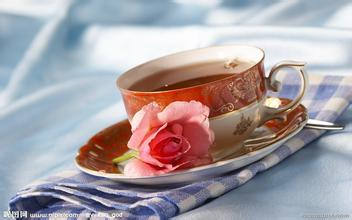Grinding scale of Salvadoran coffee beans introduction to the taste manor of the regional treatment method of coffee beans in El Salvador
El Salvador boutique coffee is concentrated in the volcanic rock producing areas of Santa Ana in the west and Charantanan fruit in the northwest. In recent years, the top 10 cup tests are almost entirely from these two producing areas, with an elevation of about 9-1500 meters, mainly bourbon (68%), followed by Pacas (29%). Mixed-race Pakamara, Dulaai and Kaddura only account for the artificial breeding varieties of Pacas and Maragogipe. It was first cultivated by researchers in El Salvador in 1958. Pacamara is an excellent variety under rare artificial breeding, which is better than blue, and perfectly inherits the advantages of the mother plant. Both the excellent taste of Pacas and the large size of Maragogipe are inherited by raw bean granules. The bean body is at least 70% and 80% of that of elephant beans, with more than 17 orders and more than 100% and more than 18 eyes. Average bean length 1.03 cm (general bean about 0.8-0.85 cm) average bean width 0.71 cm (general bean about 0.6-0.65), thickness 0.37 cm, bean shape plump and round. The biggest feature of this variety is that it is sour, lively and tricky, sometimes biscuit, sometimes fruity, thick and greasy. The quality is the best from El Salvador and Guatemala.
In the early 1990s, guerrilla warfare greatly damaged the country's national economy, reducing coffee production from 3.5 million bags in the early 1970s to 2.5 million bags in 1990-1991. The eastern part of the country was most affected by guerrilla warfare, and many farmers and workers were forced to leave the manor. The shortage of funds has led to a sharp drop in coffee production, from 1200 kg per hectare in the past to less than 900kg per hectare today.
In addition, the government imposed an additional 15% tariff on exported coffee in 1986, that is, an additional 15% in addition to the existing 30% tax. Taxes, together with unfavorable exchange rates, have greatly reduced the export of coffee and the quality of coffee.
The government finally realized the great role of coffee in the national economy, such as solving employment, earning foreign exchange and developing agricultural production, so it privatized some coffee export industries in 1990, hoping to increase the income rate of coffee in the export market.
Today, this coffee accounts for 40% of the country's exports. The best quality coffee is exported from January to March, and 35% of the extra hard beans are exported to Germany.
The civil war caused chaos and affected economic development, but ironically allowed the ancient coffee to be preserved, and the situation was so chaotic that coffee producers in El Salvador failed to catch up with the renewal of coffee varieties in Central and South America.
El Salvador produces 100% Arabica coffee, of which 68% is Bourbon, Coffea arabica var. Bourbon), 29% Pacas, other varieties including Pacamara,Caturra, etc.
The Pacas variety, first discovered in El Salvador in 1949, is a natural hybrid between bourbon and Catura.
The variety Pacamara, which was artificially bred by pacas and maragogipe (or maragogype), was first bred in 1958 (1954). Pacamara species is a rare artificial breeding of excellent varieties, blue is better than blue, perfectly inheriting the advantages of the mother plant, both the excellent taste of pacas species, raw bean granules also inherited the large size of malagogipe. The Pacamara species is thought to be the result of the pursuit of large Arabica species.

Important Notice :
前街咖啡 FrontStreet Coffee has moved to new addredd:
FrontStreet Coffee Address: 315,Donghua East Road,GuangZhou
Tel:020 38364473
- Prev

Introduction to the grinding scale of the regional treatment method for the taste of Cuban crystal mountain coffee beans
Crystal Mountain Coffee is very precious. This is mainly for two reasons. The first reason is the economic sanctions imposed by the United States against Cuba and the non-opening up of Cuban imports. The second reason is that at present, Cuban coffee beans are mostly acquired by the French and Japanese markets, especially Japan, so it is difficult to buy coffee beans directly from Cuba. Nevertheless, Cuban coffee is among coffee lovers around the world.
- Next

Grinding scale of Nicaraguan Coffee beans Variety treatment introduction to the Origin of the Manor
Lake Nicaragua has more than 300 islands, the smallest of which is only a few hundred square meters. The largest island is Ometepe, which is 26 kilometers long and 13 kilometers wide and covers an area of more than 300 square kilometers. There are two volcanic cones on the island, one of which is 1610 meters high. The island also has many historical relics of Mayan culture. The lake is full of water birds, and it is rich in all kinds of saltwater fish, including crocodiles, sharks and the sea.
Related
- Detailed explanation of Jadeite planting Land in Panamanian Jadeite Manor introduction to the grading system of Jadeite competitive bidding, Red bid, Green bid and Rose Summer
- Story of Coffee planting in Brenka region of Costa Rica Stonehenge Manor anaerobic heavy honey treatment of flavor mouth
- What's on the barrel of Blue Mountain Coffee beans?
- Can American coffee also pull flowers? How to use hot American style to pull out a good-looking pattern?
- Can you make a cold extract with coffee beans? What is the right proportion for cold-extracted coffee formula?
- Indonesian PWN Gold Mandrine Coffee Origin Features Flavor How to Chong? Mandolin coffee is American.
- A brief introduction to the flavor characteristics of Brazilian yellow bourbon coffee beans
- What is the effect of different water quality on the flavor of cold-extracted coffee? What kind of water is best for brewing coffee?
- Why do you think of Rose Summer whenever you mention Panamanian coffee?
- Introduction to the characteristics of authentic blue mountain coffee bean producing areas? What is the CIB Coffee Authority in Jamaica?

